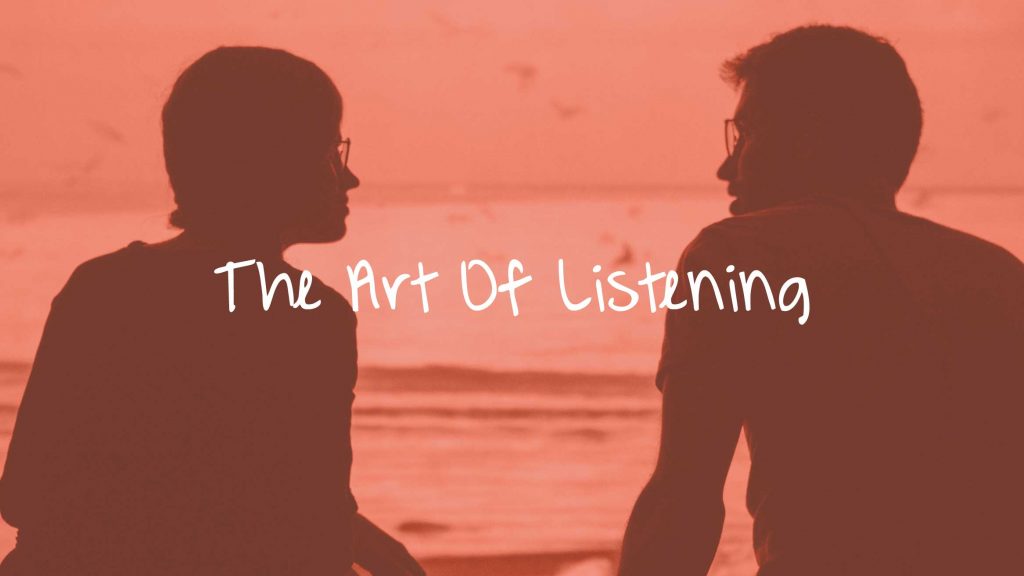|
Getting your Trinity Audio player ready...
|
My dear brothers and sisters, take note of this: Everyone should be quick to listen, slow to speak and slow to become angry (James 1:19 NIV).
Studying the Greek word for “listen” I realized the word is often used in the New Testament for hearing and understanding.
He who has ears to hear should listen and understand (Matthew 11:15 NLT).
I don’t listen well. I’m more the speaking-too-much type. I get frustrated better than I listen. If I’m not listening, then I am also not understanding what the other person means.
There is an art to listening.
Like any art form or athletic pursuit, it takes time and regular practice. Every Spring it takes about 500 miles of cycling to get back into shape (I exercise throughout the winter – but not by cycling).
The old motto “use it or lose it” applies to listening. Unfortunately, our conversations can deteriorate to various forms of anger, shouting, and manipulation.
It happens to all of us if we don’t keep our listening in shape.
Losing the ability to artfully listen, and then communicate your ideas, leaves you in a deficit. You can’t discuss something if you don’t know what the other person is saying.
A while back, I read a book entitled Crucial Conversations. The author had an amazing conclusion:
People fall into three categories with their conversations – those who digress into threats and name-calling, those who revert to silent fuming, and those who speak openly, honestly, and effectively.
After observing couples for hundreds of hours, the two scholars predicted relationship outcomes and tracked their research subjects’ relationships for the next decade. Remarkably, they were able to predict nearly 90 percent of the divorces that occurred.
There is a predictability in art.
My wife, the artist, can look at a painting and say, “That’s great!” She paints, so she knows. I can look at a cyclist and think, “I can pass this guy or know that he can catch and trash me.” I know this by the riding style, the bike, and the clothing.
As a pastor, I learned the best marriages – those with peace and joy – have learned to listen. As I observe people, the most anxious, the angriest, and those with a past littered with bad relationships – well, they talk too much.
Perhaps the refusal to listen indicates an ego that deems self the only topic of value to discuss. Or it could be insecurity – like knowing you can’t cook and then blaming the recipe when those who try it run for the restroom.
The good news – I can ride better, you can understand Picasso, and when my wife and I come to your house for dinner, prayerfully, you have a lot of culinary practice!
Listening is an art. You can improve. And it’s simple to start…
Stop talking so much. Listen carefully and stop talking. You can do it. There’s an easy formula: Speak 10 percent less.
The art of listening gives value to the other person. Make it a 60/40 conversation. Let them speak 60 percent of the time and you only 40 percent. You could be an 80 percenter (which is why people avoid you). Over-compensate by speaking only 20 percent of the time, then don’t be surprised when your friends return.
Here is what I find: When I speak less, people listen more. The more I speak, the less they listen.
We can do it. Let’s practice the art of listening by talking less.
50 to 40 to 30 to 20 – our Art of Listening training plan!
At least with me, God still does miracles.

